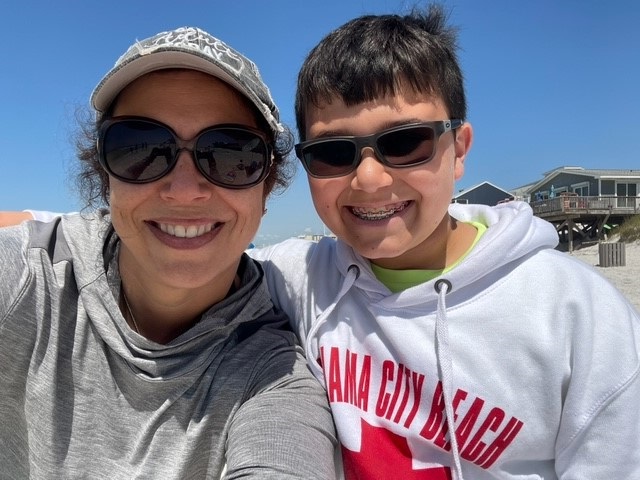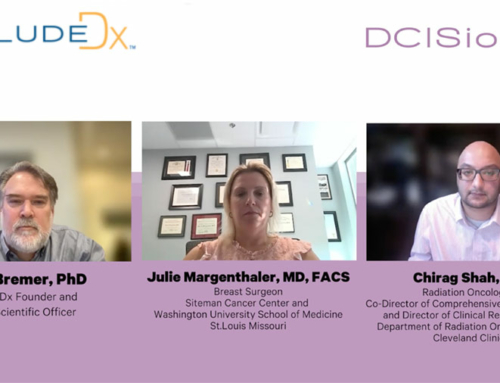“DCISionRT helps me, the radiation oncologist and the patient make the most informed DCIS treatment decision.”
Life takes us on many unexpected paths. Dr. Nicole Sroka began playing the piano at age 5 and played extensively – 6 hours/day – through her junior year of college. This level of play resulted in carpal tunnel and ultimately surgery. With her sights set on becoming a surgeon, she decided to play the piano for enjoyment and pursue a medical degree. Dr. Sroka listed two career aspirations on her medical school application – a career in surgery or life as a nun. The common denominator – Dr. Sroka wanted to devote her life to helping people. Luckily for her patients, she chose the surgery route.
“After I finished my general surgery degree, I applied for a breast surgery fellowship at Sloan Kettering and was accepted. I fell in love with the patients and their journeys and knew that I wanted to play a role long term in helping them. Since a majority of breast surgery requires reconstruction, I was able to combine my desire to focus on plastic surgery with my need to help breast cancer patients.”
Dr. Sroka is part of a multidisciplinary team at Piedmont Healthcare dedicated to breast health. She and her team focus on individualized patient care and have been using DCISionRT® for over two years. “I am a huge proponent of molecular tests and DCISionRT, which was developed specifically for ductal carcinoma in situ (DCIS), is a great alternative to Oncotype DX (Oncotype DX Breast DCIS Score test). In addition, it has a lot of published data to support it.”
DCISionRT combines the latest innovations in molecular biology with artificial intelligence and machine learning and is the only test that quantifies the risk of DCIS and invasive breast cancer recurring and predicts how much (if any) radiation therapy might reduce the risk of recurrence.
“I take a very individualized approach to treating breast cancer patients. I don’t think that every patient fits into a set protocol and we need the complete story when we are making decisions on how to manage an individual’s disease. DCISionRT helps me, the radiation oncologist and the patient make the most informed treatment decision. It also gives the patient peace of mind that we’re doing the right thing. Some patients don’t want to have radiation, but the test results help them understand that it would decrease their recurrence risk. I have also seen patients who have been able to safely and confidently omit radiation.”
“For our practice, DCISionRT is a valuable tool that is available and has credible data behind it. Why wouldn’t you use it to help every patient with DCIS make the right decision?”






